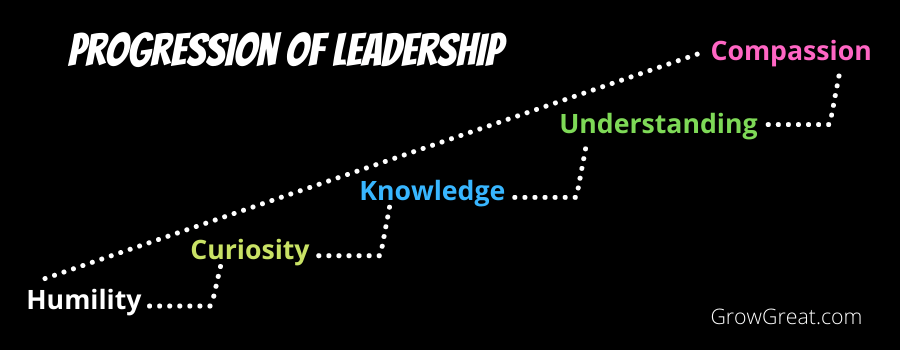Podcast: Play in new window | Download (Duration: 12:58 — 11.9MB)
Subscribe: Apple Podcasts | Spotify | RSS | More
September 22, 2021. Day 22 of our 30-Day Micro Leadership Course.
Daily communication.
Yesterday we focused on the DNA kind of message – the communication that tells everybody why we’re here together, what we’re doing and how we’re doing it. In my experience, conciseness and candor pay. Bigtime.
Before we go further about any kind of communication it’s important to figure out how valuable candor is going to be in your group, team or organization. I’m happy to make an appeal for you to embrace candid conversations fully, but you have to decide for yourself.
There is an environment among any group where everybody understands the unwritten rules of having candid conversations. I’ve coached clients who were in environments where being candid simply wasn’t done. Not out in the open at least. Secret private conversations might be, but leadership dare not engage in such behavior when they were formally together. It typically goes that way because the top-level leader – the #1 – doesn’t place a high value on candor. I respect every leader’s right to operate as they please. Even if I disagree with their philosophies or way of doing things.
Such cultures though take a heavy toll on people. And they stymie innovation, growth, and high performance. It’s especially vexing when an organization performs at a high level in spite of their lack of candor. What could they do if they fully embraced honest, candid communication? That lost potential always haunts me.
I encourage every leader and every emerging leader to understand the high value of candor – the quality of being open and honest in expression; frankness.
The enemy is usually just one thing, a lack of safety. The leader doesn’t feel safe. Others don’t feel safe. So people remain silent or they avoid being as honest as they need to be. It’s safer to avoid speaking up, speaking out, or being completely honest.
We’ve all experienced those situations where we just stare down at our shoes, unwilling to speak up even though our minds are racing with things that need to be said. It’s especially frustrating when nobody says the very things that need to be said and we’re wishing we could. But we don’t. The fallout, the potential for negative consequences is just too great. It’s called being stuck. Not a place of growth or the highest performance!
So let’s figure out how we can build safety so we can then make candor part of the fabric of our organization.
First, avoid a critical judgment environment.
But how? For starters, listen – and listen so you can better understand. Go back and revisit those critical components – the ingredients – that make up the progression of leadership.

Without a commitment to these ingredients, there’ll never be enough safety to have candor. Critical judgment emanates from people who lack humility and curiosity. Show me an unsafe culture and I’ll show you a culture filled with arrogance and answers. That’s why people keep their mouths shut. There’s no need to share insights with somebody who already has their mind made up.
The boss enters the room, asking people to weigh in on an issue, but first, he throws down this verbal gauntlet, “My mind is made up.”
Nobody in their right mind dare speaks up after that unless it’s to echo agreement and consent with the boss. It’s the proverbial “yes men” syndrome that can overtake any culture led by a closed-minded person.
Second, avoid playing the blame game.
At the moment, finger-pointing isn’t profitable. Even if we’re managing a crisis, finding who is at fault isn’t profitable. But the critical thing is to refrain from the reason why we assign blame altogether – to feel better about ourselves. Perhaps to deflect any responsibility from ourselves. Lots of reasons why we behave so poorly. We have to resist being so selfish.
Grace is unmerited favor yet we’re all prone to say that somebody doesn’t deserve forgiveness, or compassion, or consideration. But that’s precisely the point. To give such consideration to people no matter what – that’s the true mark of high-level leadership.
You can fix any problem without fixating on who’s to blame. Remedy “the person responsible” in a way that won’t disrupt the group safety. Besides, consider the valuable (or invaluable) lesson learned if somebody did actually make an error. Think they’ll do it again? Not likely. We’ve all done some boneheaded things. Think about how it can negatively impact the individuals and the group for you to call out or barbeque a person – even if they are responsible. Now think about how the individual and group will respond when the problem is addressed and you’re not absorbed by convicting somebody (or a group of people) for having caused the problem.
Third, be strategic and think long-term.
It makes all of this behavior easier because we see the value. When you’re playing a longer game it changes these perspectives from knee-jerk reactions in the moment to considerations about how this might impact us next week, next month, next year – and moving forward.
Last night I went to one of my grandson’s football games – 7th grade. They came into the game having lost both their games so far, but they had high hopes they might win this one. They got off to a good start, but pretty soon it was apparent that they lacked the speed and tackling ability to match their opponent. The longer the game went, the more success the opponent had. The more my grandson’s team failed. At some point, the coach of my kiddo’s team grew openly frustrated. He started yelling at the timekeeper. He was yelling at the officials. At some point he even spiked a football in his hands he was so outraged. His team’s performance declined as his demeanor declined. Negative influence at its worst. Influencing a group of 12-year-olds not to perform at their best, but maybe at their worst.
The same things happen to us at work. We have moments or extended periods of time where we’re stuck thinking at the moment. It brings out our worst. We react and suddenly all safety is forfeited. Now people shut down. Grow increasingly less engaged. Shut their mouths. Keep their insights and ideas to themselves. And we all suffer because of it.
Be well. Do good. Grow great!

 About the hosts: Randy Cantrell brings over 4 decades of experience as a business leader and organization builder. Lisa Norris brings almost 3 decades of experience in HR and all things "people." Their shared passion for leadership and developing high-performing cultures provoked them to focus the Grow Great podcast on city government leadership.
About the hosts: Randy Cantrell brings over 4 decades of experience as a business leader and organization builder. Lisa Norris brings almost 3 decades of experience in HR and all things "people." Their shared passion for leadership and developing high-performing cultures provoked them to focus the Grow Great podcast on city government leadership.
The work is about achieving unprecedented success through accelerated learning in helping leaders and executives "figure it out."
